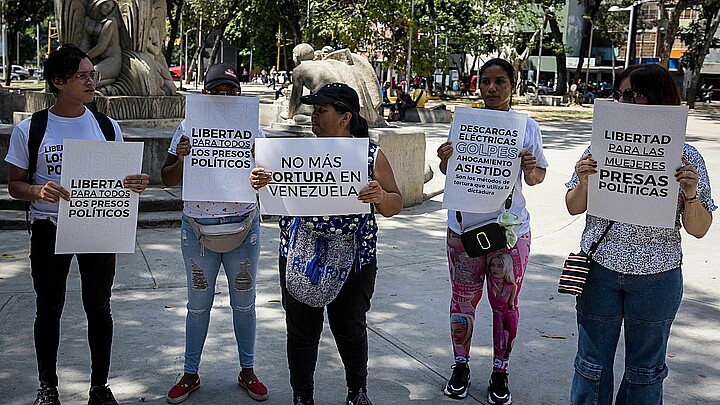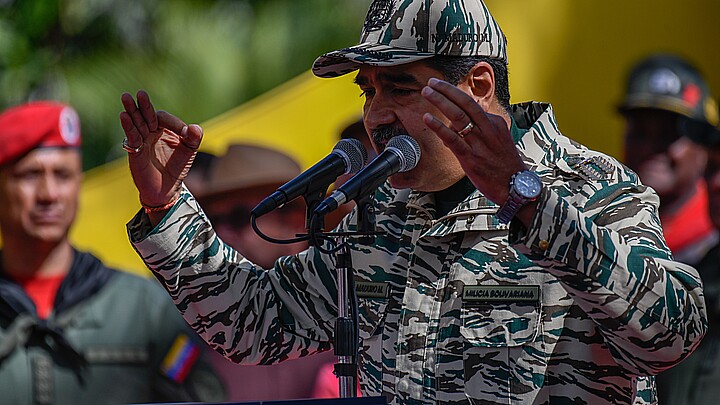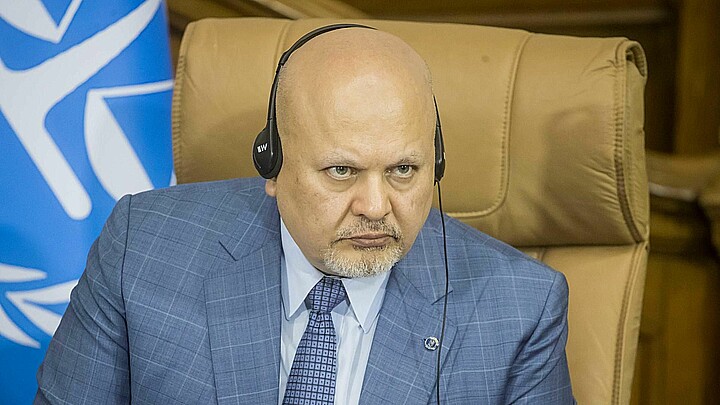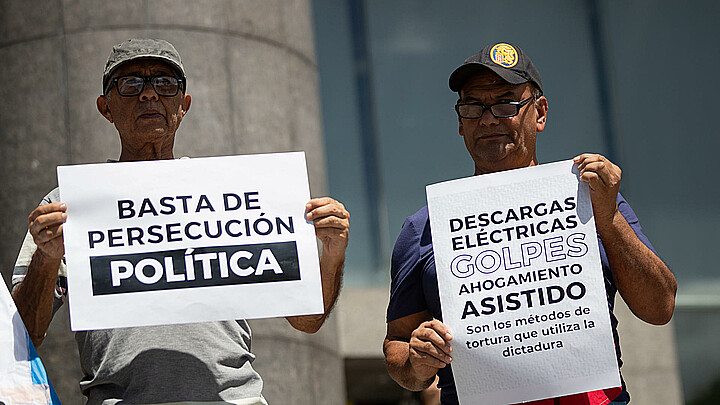Human Rights
Relatives of Venezuelans killed in protests hope ICC will listen
The Office of the Prosecutor of the International Criminal Court to set up an office in Venezuela
April 4, 2022 3:38pm
Updated: April 5, 2022 8:28am
Relatives of Venezuelans killed in the 2017 anti-government protests in Venezuela on Saturday said it "positive" that the Office of the Prosecutor of the International Criminal Court (ICC) will set up an office in the country, hoping "to be heard" and that "extrajudicial executions" will be investigated.
"We, the relatives and victims of those killed in protests in 2017, trust in international justice through the ICC. We hope to be heard and that extrajudicial executions are incorporated into the investigation," the Alliance of Relatives and Victims 2017 (Alfavic) posted on Twitter.
Nosotros los Familiares y Víctimas de los Asesinados en Protestas 2017 confiamos en la justicia Internacional a través de la CPI, esperamos ser escuchados y que las ejecuciones extrajudiciales sean incorporadas en la investigación. https://t.co/IGxEmQ9rdu
— Alianza de Familiares y Víctimas 2017 (Alfavic) (@Alfavic2017) April 2, 2022
ICC Prosecutor Karim Khan said last Thursday in Caracas that the organization will open an office in Venezuela following an agreement reached with the regime of Nicolás Maduro, with whom he met privately last week.
Elvira Pernalete, mother of Juan Pablo Pernalete, a young man killed at point blank range by an agent of the security forces, think it is “positive" that the ICC is installed in Venezuela "as long as the victims are heard, (and) that the murders and extrajudicial executions are included in the investigation."
"We have been seeking justice for five years and it has been denied… Now, after five years, with all the international pressure, they are trying to create a false sensation of giving us justice, justice that is not genuine, because here they are carrying out, in a rushed manner, investigations in the Public Prosecutor's Office in an accelerated manner," she claimed.
She added that the authorities "are not investigating the chain of command" and that the accusations "that have been made against very few officials do not correspond either to the seriousness or the reality of the facts, which causes these officials to go free.”
"These investigations are insufficient… they benefit the victimizers and not the victims. We are at a disadvantage, because the whole system is flawed to give us true justice", she concluded.
In the last week of March 2017, Venezuela was shaken by two rulings of the Supreme Court of Justice (TSJ) suppressing the powers of the Parliament. As a result, the opposition resorted to protests, which left more than 120 dead and the condemnation of the Maduro regime by part of the world.











